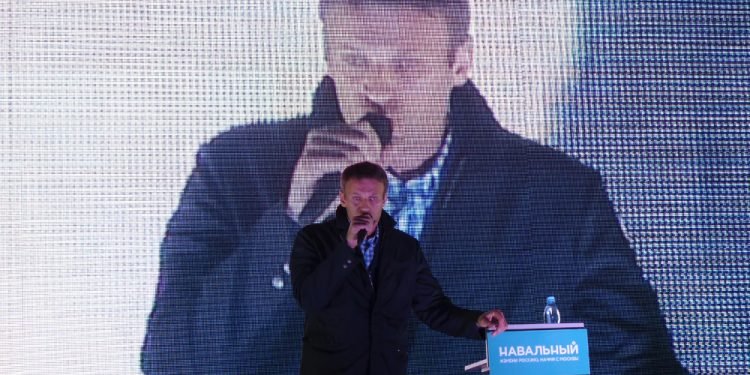Brussels (Brussels Morning) The annual meeting of the Organisation for the Prohibition of Chemical Weapons (OPCW) renewed pressure on Russia to explain the poisoning of opposition politician Alexei Navalny, AP reported Monday.
Navanly fell ill on a flight in Russia on 20 August and was taken to Germany for treatment in a Berlin hospital two days later. Tests conducted in Germany, France and Sweden, and by the OPCW, showed that Navalny was poisoned with a Novichok nerve agent. Navalny’s allies have accused the Russian government of being behind the poisoning.
OPCW Director General Fernando Arias stressed that poisoning a person with a nerve agent represents use of a chemical weapon, according to the Chemical Weapons Convention. At the start of the organisation’s annual meeting, 56 OPCW member countries issued a statement calling on Russia to explain the circumstances of the Navalny poisoning and to do so in a swift and transparent manner.
Moscow responded in writing, accusing Germany and its allies of stirring up a disinformation campaign against Russia that has culminated in the demand for an investigation under the auspices of the OPCW. Moscow invited OPCW experts to provide technical assistance in Russia’s investigation in October. OPCW head Arias has indicated that talks to arrange the meeting are underway.
Unhappy with Russia’s response, the EU has imposed sanctions against several Russian officials and bodies over the incident. Moscow announced earlier in November that it would respond in kind by targeting German and French officials.
Germany criticised Russian sanctions against German and French officials in mid-November. Chancellor Angela Merkel’s spokesman Steffen Seibert stressed that Moscow could have shed light on the poisoning, but instead had decided to impose sanctions against foreign officials. Such a move is unjustified and inappropriate, he warned, and flew in the face of international efforts to clear up the case.
Germany’s Ministry of Foreign Affairs spokesman Christopher Burger stated that the Ministry did not know which officials were being targeted, and that it knew nothing beyond what Russia’s Minister of Foreign Affairs Sergey Lavrov had announced.
Twitter:




